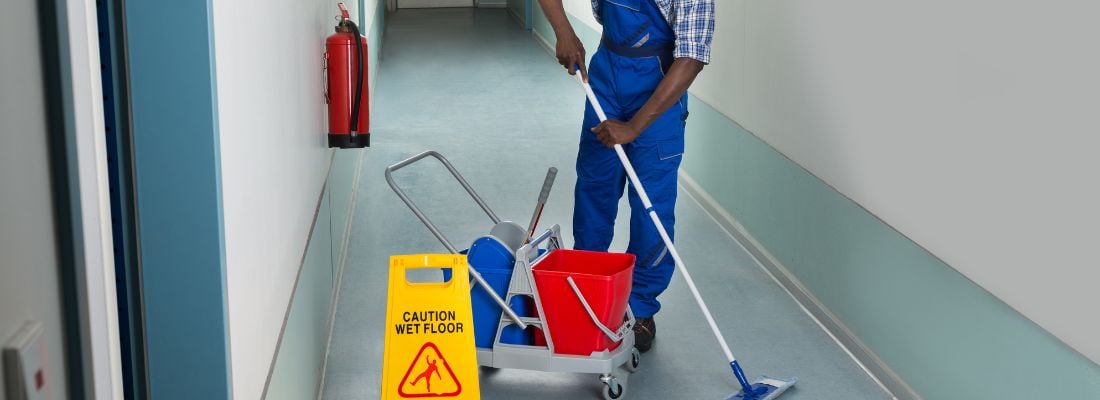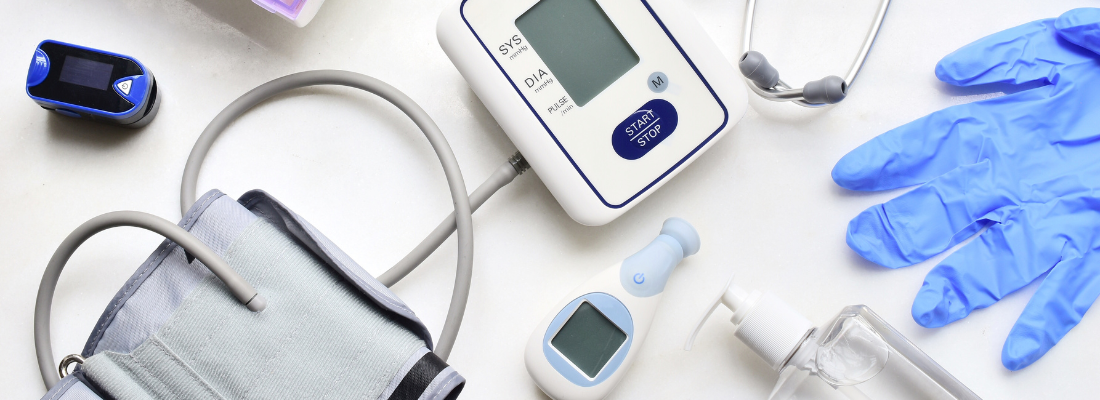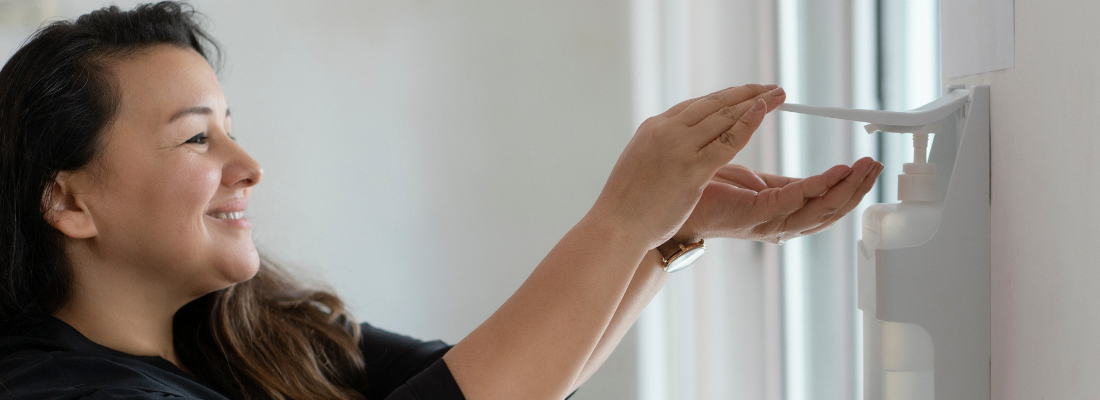We all know how important it is to be productive in the workplace – getting the job done properly, timeously and on budget ensures the success of the business. This requires a skilled, motivated workforce, teamwork, and a well-honed business plan. But have you ever considered the impact that hygiene and cleaning protocols in the workplace can have on productivity, sustainability and cost saving?
In this blog we’re examining the importance of behavioural influence and the role it plays in ensuring the workplace is not only safer and healthier, but also more efficient and ultimately more profitable.
Interclean recently caught up with Dr Bert Pol, a respected expert in the field of behavioural change strategy and communication. Dr Pol is a co-founder and partner at Tabula Rasa Behaviour Change and Communication Institute at the Hague. He offered some valuable insights into how behavioural influence can be implemented and how these protocols can be beneficial for employers, employees, cleaning service providers, and those who frequent healthcare facilities.
What is hygiene behaviour influence?
Broadly speaking hygiene behaviour change is a systematic approach to encourage the widespread adoption of safe hygiene practices, to keep people and their environments clean and safe.
In many aspects good hygiene has been instilled in us all from an early age. Basic sensible hygiene habits like washing your hands after visiting the bathroom and covering your mouth when sneezing or coughing are learned behaviours. However, it’s not always a given that these seemingly simply habits are applied or even encouraged. That’s where we need to be proactive in implementing hygiene behaviour change.
Germs, some of which are extremely dangerous, can run rife in any workplace and are easily transferable from one person to another. Offices and hospitals are busy places, with people frequently coming and going. This leaves them susceptible to bacteria and viruses from outside the hospital.
Without a rigorous cleaning and hygiene management plan these spaces can quickly become compromised – making them hazardous environments for the people who work there, as well as anyone visiting. Implementing hygiene and cleaning behavioural influence to maintain healthy habits not only protects the wellbeing of the occupants, it also allows the cleaning crews whose responsibility it is to clean and sanitise these spaces, to function optimally.
Why is behavioural influence important?
“Behavioural influence is an extremely important factor in hygiene and cleaning. There can be many factors influencing how people behave, such as education, cultural and social norms, and values. By delving deeper into the psychological and social influences of behaviour and applying that to your interventions, you can be more effective in implementing behaviour change strategies,” explains Dr Pol.
Workplace cleanliness isn't just important, it's vital for business continuity in the long run. If your organization is still striving to get its cleaning protocols up to regulations, it's definitely time to rethink the plan.
How does behavioural influence apply to office cleaning teams?
“Commercial cleaning companies can benefit from behavioural interventions too. When people adhere to good hygiene habits in the office or workspace it’s much easier for the cleaning organisations to stick to the required service level agreements or cleaning contract,” maintains Dr Pol.
Due to poor hygiene standards in the office, cleaning companies may have to use extra manpower, hours and materials in order to fulfil the requirements. Although not the fault of the cleaning company, this may result in them not finishing in the allocated time, and the knock-on repercussion of the client incurring extra costs – which ultimately leads to dissatisfaction on both sides.
Small changes can ensure big gains in health and hygiene
“While it should be obvious to employees that the welfare of their co-workers is important, it is quite surprising that it is not in the forefront of everyone’s minds. It may seem strange that people don’t think about such practices, but this is the way that germs spread at such an alarming rate. When it comes to implementing behavioural influence in the workplace, there are “small” things which can contribute to the wellbeing of your team,” maintains Dr Pol.
By law employers have a duty of care to follow health and safety protocols. This includes providing a healthy space for employees to work, where they feel protected. However, an employee has no such legalities imposed upon them. It is merely a case of “doing the right thing”. That is why it is critical that employees are encouraged to treat both their fellow workers and their workspace (especially areas such as the bathrooms and office kitchen), with respect.
People may neglect or forget to wash their hands after using the facilities. They could be in a hurry, rushing to take an important phone call or another logical reason. This is where clear and compelling messaging helps to remind them of this crucial hygiene behaviour.
“Another obvious but vitally important rule is to simply avoid leaving foodstuffs and dirty cutlery and crockery on desks and work surfaces. Fill and run the office dishwasher regularly and always leave toilets and bathrooms clean and tidy,” suggests Dr Pol. Polite, yet clear messaging in these spaces can help implement behavioural change and bring about the desired results.
How can a cleaning service provider or a facility manager influence the people in the building to practice good hygiene?
“A facility manager can apply the interventions that are developed for his or her organisation. However, remember not to generalise. It must be a tailor-made intervention that suits the specific situation. Provide your team with the necessary products and materials to keep their spaces clean and hygienic. The protocol must be easy to follow, otherwise people won’t want to do it. If people aren’t reminded to clean up after themselves, chances are they’ll simply forget or prioritise other things,” explains Dr Pol.
Having a maintenance checklist ensures an actionable workplace hygiene initiative.
You can include the following in the maintenance checklist:
- Bathroom cleaning schedule
- Pantry cleaning schedule
- List of sanitary supplies and when to replace them.
This ensures that your employees are not constantly distracted and can focus on their core tasks, which results in increased productivity. A healthy workplace also plays a significant role in reducing absenteeism which also contributes to operational efficiency.
Examples of interventions to influence behavioural change
“It’s essential when you’re communicating your message about following good hygiene and cleaning protocols that you do it in the right way. Nobody likes being scolded, threatened, or talked down to. Use humour or visual cues and a friendly yet firm tone. It’s also not wise to use complicated language. Make your message clear and easy to understand. If the content load is too high, people won’t make the time to read the message, let alone follow the instructions,” comments Dr Pol.
“Organizations can stimulate employees' hygienic behaviour by 'organising' exemplary behaviour: if managers visibly observe hygiene, there is a greater chance that employees will do the same. We are very sensitive to what others do,” maintains Dr Pol.
“For manufacturers of cleaning products, there is a great opportunity for customer preference if they develop packaging that allows employees at the place that needs to be fresh and clean to grab and use them without difficulty. These can be placed where they are easy to access on their desks and in the pantry, etc. And if those materials also look attractive – there’s all the more reason employees will use them regularly. So: make it easy and fun. That helps!” he adds.
How can the healthcare industry benefit from behavioural influence with regards to cleanliness and hygiene?
Poor health and hygiene habits can cause serious harm, and even be fatal.
“All kinds of bacteria and viruses can be introduced into hospitals, which can of course be catastrophic to the patients, staff and even visitors. That’s why it’s non-negotiable to implement hygiene interventions to influence people and assist them in upholding the rigorous hygiene and cleanliness regimes that hospitals require to stay protected,” explains Dr Pol.
“Hospitals are also high stress environments where people are in a rush or distracted by more pressing matters. People may be tense or nervous which may lead to them forgetting to sanitise adequately or at all. This is where it’s important to develop meticulous behavioural influence interventions and a comprehensive system to implement them,” he adds.
What interventions can be implemented in a hospital to remind visitors and staff to practice safe hygiene?
“One of the interventions is to place hand sanitiser dispensers in all the places people would expect to see them. Make them salient and visible. Use clear messaging that grabs attention and reminds people to sanitise their hands,” says Dr Pol.
The best type of sanitising soaps to use are from “hands-free soap dispensers” or “touch-free soap dispensers”. These are significantly more hygienic than the “pump style” dispensers as you do not need to touch anything with your hand to release the soap. These are now much more sophisticated than before, using systems such as infra-red sensors for operation. Using air driers to dry your hands after washing them is not only more hygienic, but also better for the planet.








